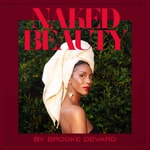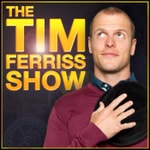London Writers' Salon – Details, episodes & analysis
Podcast details
Technical and general information from the podcast's RSS feed.

London Writers' Salon
Parul Bavishi, Matthew Trinetti
Frequency: 1 episode/8d. Total Eps: 154

Recent rankings
Latest chart positions across Apple Podcasts and Spotify rankings.
Apple Podcasts
🇨🇦 Canada - books
27/07/2025#99🇬🇧 Great Britain - books
19/07/2025#94🇬🇧 Great Britain - books
17/07/2025#65🇬🇧 Great Britain - books
16/07/2025#58🇬🇧 Great Britain - books
12/07/2025#70🇬🇧 Great Britain - books
11/07/2025#72🇬🇧 Great Britain - books
10/07/2025#46🇬🇧 Great Britain - books
08/07/2025#97🇬🇧 Great Britain - books
07/07/2025#70🇬🇧 Great Britain - books
06/07/2025#52
Spotify
No recent rankings available
Shared links between episodes and podcasts
Links found in episode descriptions and other podcasts that share them.
See all- https://www.instagram.com/p
11467 shares
- https://www.instagram.com/193countries
3312 shares
- https://www.instagram.com/stories
1726 shares
- https://sidehustleschool.com/
815 shares
- https://jamesclear.com/atomic-habits
569 shares
- https://gretchenrubin.com/
481 shares
- https://twitter.com/stephsmithio
365 shares
- http://twitter.com/WritersSalon
238 shares
- https://twitter.com/Al_Humphreys
71 shares
RSS feed quality and score
Technical evaluation of the podcast's RSS feed quality and structure.
See allScore global : 63%
Publication history
Monthly episode publishing history over the past years.
#114: David Whyte - Reads poems: A Seeming Stillness, A Song for the Salmon and Start Close In. Plus Writing Rituals, Fallow Periods and Frontiers
Episode 114
mardi 27 août 2024 • Duration 19:24
A curation of our favourite questions and poems from our interview with poet David Whyte. We ask him: What we can do when we can’t access our writing? How do we live through fallow periods of writing and what rituals he uses for writing. He shares the poems: A Seeming Stillness, A Song for the Salmon and Start Close In.
*
ABOUT DAVID WHYTE
David Whyte is an internationally renowned poet, author, and speaker. His books include The Heart Aroused: Poetry and the Preservation of the Soul in Corporate America, Consolations: The Solace, Nourishment and Underlying Meaning of Everyday Words, and The Bell and the Blackbird. His latest collections are David Whyte: Essentials and Still Possible.
For show notes, transcripts and to attend our live podcasts visit: podcast.londonwriterssalon.com.
For free writing sessions, join free Writers’ Hours: writershour.com.
*
FOLLOW LONDON WRITERS’ SALON
Twitter: twitter.com/WritersSalon
Instagram: instagram.com/londonwriterssalon
Facebook: facebook.com/LondonWritersSalon
If you’re enjoying this show, please rate and review this show!
#113: Lyn Slater — How to Reinvent Yourself At All Ages, Becoming An Accidental Icon, The Reality of Going Viral, Blogging for Pleasure, Writing Memoir & Moving Beyond Fame
Episode 113
samedi 17 août 2024 • Duration 01:02:50
Lyn Slater on going viral with her blog, Accidental Icon in her 60s, writing memoir How to Be Old and starting a Substack in her 70s and why getting older can be the most invigorating phase of life—full of rebellion, reinvention, connection, and creativity.
*
ABOUT LYN SLATER
Lyn Slater is a cultural influencer, model, writer, content creator and former professor. She started Accidental Icon in September of 2014 and has since garnered a loyal fan base of almost a million followers across platforms. Her memoir is How to Be Old: Lessons in Living Boldly from the Accidental Icon
*
RESOURCES & LINKS
- 📄 Interview Transcript (unedited)
- Accidental Icon
- How To Be Old
- Lyn’s Substack
- Lyn’s Instagram
- “Three Iconic Girls”
- Trick Mirror by Jia Tolentino
- How to Do Nothing by Jenny Odell
- “How Millenials Became the Burnout Generation” by Anne Helen Peterson
- Cassidy Sachs, Lyn’s editor
For show notes, transcripts and to attend our live podcasts visit: podcast.londonwriterssalon.com.
For free writing sessions, join free Writers’ Hours: writershour.com.
*
FOLLOW LONDON WRITERS’ SALON
Twitter: twitter.com/WritersSalon
Instagram: instagram.com/londonwriterssalon
Facebook: facebook.com/LondonWritersSalon
If you’re enjoying this show, please rate and review this show!
#104: Rupal Patel — Lessons from the CIA, Building A Creative Practice, Prioritising Time & Writing Non-Fiction
Episode 104
samedi 4 mai 2024 • Duration 01:06:55
Rupal Patel, an ex-CIA agent and author of From CIA to CEO on applying CIA tools to your personal and creative life. Plus she gives us tips for how to create more time and how to pitch a non-fiction book.
*
RESOURCES & LINKS
- 📄 Interview Transcript (unedited)
- From CIA to CEO
- Rupal’s TED Talk, My Unexpected Discovery About Working at the CIA
- Rupal’s website
*
ABOUT RUPAL PATEL
The daughter of Indian immigrants, Rupal Patel is a born-and-bred New Yorker now living near London. Her unconventional career as a CIA analyst and successful entrepreneur has taken her from dusty briefing rooms in jungles and war zones to the gilded halls of NATO and Capitol Hill. As a CEO, leadership consultant, and strategic advisor, she now helps founders, corporate leaders, and next-generation change-makers lead in powerful, meaningful ways while building mental toughness and unshakable resilience.
For show notes, transcripts and to attend our live podcasts visit: podcast.londonwriterssalon.com.
For free writing sessions, join free Writers’ Hours: writershour.com.
*
FOLLOW LONDON WRITERS’ SALON
Twitter: twitter.com/WritersSalon
Instagram: instagram.com/londonwriterssalon
Facebook: facebook.com/LondonWritersSalon
If you’re enjoying this show, please rate and review this show!
#014: Cathy Newman — Juggling Creative Projects, Writing News Stories and The Power of Creative Collaboration
Episode 14
samedi 25 juin 2022 • Duration 49:13
Why are creative partnerships so powerful? How can we work on multiple creative projects at one time? In this interview, we talk to the award-winning investigative journalist and Channel 4 News presenter Cathy Newman, we discuss her non-fiction book It Takes Two: A History of the Couples Who Dared to Be Different which is all about the power of collaboration. We deconstruct how she writes news stories, books, and her research process. We also explore the idea of creative partnerships from Beyonce and JayZ to Clement Attlee and Winston Churchill, how these partnerships are like a ‘dance’ and how we might spot our own creative collaborator.
*
ABOUT CATHY NEWMAN
Cathy Newman is an award-winning investigative journalist and Channel 4 News’ first female main presenter. Cathy is also the author of Bloody Brilliant Women: Pioneers, Revolutionaries & Geniuses Your History Teacher Forgot to Mention, and her latest book, It Takes Two: A History of the Couples Who Dared to Be Different.
*
SHOW NOTES:
[03:41] Cathy’s love for music, and why she shifted from music to writing
[05:15] Playing in The Commons, and about her music group, The Statutory Instruments
[07:40] Transitioning from writing journalistic articles to writing for TV
[10:10] Some examples of what Cathy’s writing process for TV looks like
[14:19] How she stays on top of things, including the tools she uses
[16:18] The inspiration behind her book It Takes Two
[19:19] The themes that unify the power collaborators, including competitiveness, muses, and the idea of the power couple
[22:34] The pas de deux and the concept of balance in relationships
[26:20] The partnerships and collaborations that have helped Cathy with her career
[30:18] How to find and form creative partnerships
[33:39] The writing and research process for her book
[43:24] Self-doubt and responding to positive and negative reception
[45:40] The power of reading and how it’s helped Cathy in difficult times
*
QUOTES FROM CATHY:
“I was fascinated by the idea that a coupledom is a dance and whether that's a work relationship, a romantic relationship, and as part of the research, I read, um, a German sociologist called Georg Simmel, who talked about this concept of dyads and why this relationship of two is so crucial. And here's what I felt was quite revolutionary, was that he was talking about the need for balance and a horizontal type approach to any relationship…you've got to be finely tuned and balanced for the dance to work.”
*
RESOURCES
Connect with Cathy Newman:
Twitter: @cathynewman
Instagram: @cathynewmanc4
Links from the show:
A dilemma for Nick Clegg as Lord Rennard apologises
Manhunt: Closing in on a British Paedophile
Ukraine conflict: Military actions unfortunately connected to human loss, says Sergei Lavrov
‘You’re being emotional’: What happened when I asked Sergei Lavrov about the blood on his hands
It Takes Two: A History of the Couples Who Dared to Be Different by Cathy Newman
The Statutory Instruments - UK Parliamentary String Quartet
Georg Simmel - A German sociologist, philosopher, and critic.
Serial podcast
For show notes, transcripts and to attend our live podcasts visit podcast.londonwriterssalon.com
For free writing sessions, join free Writers’ Hours: writershour.com
*
FOLLOW LONDON WRITERS’ SALON:
Twitter: twitter.com/WritersSalon
Instagram: instagram.com/londonwriterssalon
Facebook: facebook.com/LondonWritersSalon
CREDITS:
Production by Victoria Spooner. Artwork by Emma Winterschladen
For show notes, transcripts and to attend our live podcasts visit: podcast.londonwriterssalon.com.
For free writing sessions, join free Writers’ Hours: writershour.com.
*
FOLLOW LONDON WRITERS’ SALON
Twitter: twitter.com/WritersSalon
Instagram: instagram.com/londonwriterssalon
Facebook: facebook.com/LondonWritersSalon
If you’re enjoying this show, please rate and review this show!
#013: Selina Lim — Writing Authentic Dialogue for TV, Writing about Sex, Love & Drama, and A Peek Into a Writers’ Room
Episode 13
samedi 18 juin 2022 • Duration 39:51
In this episode, Selina Lim, BAFTA-nominated screenwriter (Sex Education, Hanna) shares her screenwriting journey from her first BBC script to earning a BAFTA nomination, and how she broke into the industry as an outsider. Selina also gives us a peek at the inner workings of a writers’ room on hit TV shows - including the roles, exercises they use, and how writers collaborate inside it. We deconstruct what it takes to write a great scene, including sex scenes, what it means to write authentic dialogue and the importance of knowing our characters.
*
ABOUT SELINA LIM
Selina is a BAFTA and BIFA nominated screenwriter currently writing on series 3 of Sex Education (Eleven/Netflix) and season 3 of Hanna (Amazon/NBC) and has previously written for Hollyoaks (Lime Pictures/Channel 4) and was in the writers’ room for The Night Manager Series 2 (The Ink Factory/AMC).
*
SHOW NOTES
[02:42] Selina talks about how she became one of the Sex Education writers and her experience of being in an online writers' room
[07:22] How she started as a screenwriter
[13:24] The dynamics in a writers' room
[17:01] How to understand a character's role in your story and why it’s important to know your characters really well
[19:45] How a writers’ room function, how writers ideate and collaborate
[22:14] Writing a scene and knowing the bigger picture
[27:08] Creating a scene's structure, why she believes you should "write drunk, edit sober", and showing instead of telling
[29:32] On writing sex scenes
[32:14] What makes good and authentic dialogue?
[33:34] Selina shares what helps her understand her character more
[36:04] Dealing with self-doubt
*
QUOTES FROM SELINA LIM
“What is the work that the scene is doing? Why is it there? You have to ask so you know what emotional beat you are hitting.”
*
RESOURCES:
Connect with Selina Lim:
Website: selinalim.co.uk
Twitter: https://twitter.com/muppet0013
Instagram: instagram.com/selinalim888
Links from the show:
Instagram picture we mention at the start of the show
TV Shows mentioned:
Others
- Playing Ball - a short written by Selina for BBC
- Painkiller - a 15-minute short film
*
For show notes, transcripts and to attend our live podcasts visit: podcast.londonwriterssalon.com
For free writing sessions, join free Writers’ Hours: writershour.com
FOLLOW LONDON WRITERS’ SALON
Twitter: twitter.com/WritersSalon
Instagram: instagram.com/londonwriterssalon
Facebook: facebook.com/LondonWritersSalon*
Twitter: twitter.com/WritersSalon
Instagram: instagram.com/londonwriterssalon
For show notes, transcripts and to attend our live podcasts visit: podcast.londonwriterssalon.com.
For free writing sessions, join free Writers’ Hours: writershour.com.
*
FOLLOW LONDON WRITERS’ SALON
Twitter: twitter.com/WritersSalon
Instagram: instagram.com/londonwriterssalon
Facebook: facebook.com/LondonWritersSalon
If you’re enjoying this show, please rate and review this show!
#011: The One With Matt & Parul — Why We Created This Podcast
Episode 11
samedi 11 juin 2022 • Duration 20:59
We have published 10 episodes and we realised that we had never really introduced ourselves…
So, we’re going to talk a little about where we’ve come from and why the London Writers’ Salon exists and what this podcast means to us. We’re going to do this by interviewing each other!
*
ABOUT MATT AND PARUL
Matt Trinetti and Parul Bavishi are the co-founders of the London Writers' Salon (@WritersSalon) and the creators of the Webby-nominated Writers' Hour where they write with hundreds of writers every week day. The Salon began as an in-person monthly interview series in central London and has since evolved to become a global community. In addition to the daily Writers' Hours, they host weekly interviews with writers and run workshops to help writers get published. They have partnered with organisations like Soho House, Allbright and Women's Prize for Fiction.
Matt Trinetti is a writer, publisher, TEDx speaker, and facilitator. In addition to running LWS, Matt designs programs to help unfulfilled professionals pursue creative work, start businesses, and reinvent their careers. Matt's work has appeared in Quartz, Observer, Creative Mornings, and on his blog GiveLiveExplore.
Parul Bavishi has been an editor for over a decade. In addition to running LWS she helps thriller, YA and non-fiction writers level up their craft and get published. She previously worked as an editor and literary scout at Quercus and Random House.
*
RESOURCES AND LINKS:
For show notes, transcripts and to attend our live podcasts visit: podcast.londonwriterssalon.com
For free writing sessions, join free Writers’ Hours: writershour.com
*
FOLLOW LONDON WRITERS’ SALON
Twitter: twitter.com/WritersSalon
Instagram: instagram.com/londonwriterssalon
Facebook: facebook.com/LondonWritersSalon
*
CREDITS
Artwork by Emma Winterschladen
For show notes, transcripts and to attend our live podcasts visit: podcast.londonwriterssalon.com.
For free writing sessions, join free Writers’ Hours: writershour.com.
*
FOLLOW LONDON WRITERS’ SALON
Twitter: twitter.com/WritersSalon
Instagram: instagram.com/londonwriterssalon
Facebook: facebook.com/LondonWritersSalon
If you’re enjoying this show, please rate and review this show!
#012: Anthony Anaxagorou — Push Past Self-Doubt and Think Like a Poet
Episode 12
samedi 11 juin 2022 • Duration 01:02:23
How does a poet see the world? How can we move past self doubt and keep writing after rejection? In this episode we talk to Anthony Anaxagorou about how his journaling practice helps him generate ideas for his work, what his editing process looks like, and why he might spend eight or nine hours working on a single poem. Anthony is candid about his experience of failure and rejection, shares why we should be wary of the temptations of ‘prize culture’ (always seeking validation through the next prize), and why it’s crucial to develop our own internal value system to sustain ourselves and our writing. He even reads us some of his poetry!
*
ABOUT ANTHONY ANAXAGOROU
Anthony Anaxagorou is a British-born Cypriot poet, fiction writer, essayist, publisher and poetry educator. His second collection After the Formalities was shortlisted for the 2019 T.S Eliot Prize. He was awarded the 2019 H-100 Award for writing and publishing, and the 2015 Groucho Maverick Award for his poetry and fiction. He’s the founder of one of London's leading poetry nights, Out-Spoken, and the independent publisher Out-Spoken Press.
*
SHOW NOTES
[03:22] The experience of writing a book during the pandemic
[04:41] Anthony talks about his uncle and how he influenced him as a writer
[08:07] On failures and why it's important to ask yourself searching questions and see rejection as part of your job
[11:48] What is prize culture and why does Anthony think it's dangerous?
[14:06] Measuring success and creating your own value system
[15:04] Anthony reads his poem, "Uber"
[18:31] On being dissatisfied with his own work
[21:53] On why he carrys a notebook with him all the time, and a writing habit he got from Lydia Davis
[22:34] Anthony’s morning writing exercise
[24:15] Anthony talks about his writing process, including 7-8 hours of focusing on one poem
[27:43] How do you stop feeling intimidated by the academic side of poetry?
[31:32] Anthony reflects on what "pushing your writing as far as it can go" means to him
[34:32] Anthony shares the exercises he gives to his students to help them in writing a poem
[36:38] What is the loaf of bread analogy, and why is playing with timelines when you write essential?
[37:40] Resolving the poem and the idea of leaving the reader with questions
[39:15] How do you know when a poem is done?
[43:33] On being in conversation with the reader and why the writer is only half the conversation
[46:13] Anthony shares how he started his London-based Out-Spoken open mic nights
[49:44] Anthony reads his poem, "After the Formalities"
*
QUOTES BY ANTHONY:
“The more you read, the more you get a sense for how poems work. And it's literally just from reading and you get a sense of where things end and where is an interesting place to end. If you think along the lines of—if you think the word interesting as opposed to kind of definitive. Then it kind of—it swaps. I just want to be interesting on the page. I don't want to be correct. I don't want to be certain. I want to be interesting.”
*
RESOURCES:
Connect with Anthony:
Twitter: @Anthony1983
Facebook: anthonyanax
Website: anthonyanaxagorou.com
*
Links from the show:
After the Formalities by Anthony Anaxagorou
How To Write It by Anthony Anaxagorou
Suppose a Sentence by Brian Dillon
Uber by Anthony Anaxagorou
After the Formalities by Anthony Anaxagorou
*
Authors/Poets mentioned:
- Don Paterson
- Ta-Nehisi Coates
- Emily Dickinson
- Ocean Vuong
- Matthew Sweeney
- Jericho Brown
For show notes, transcripts and to attend our live podcasts visit: podcast.londonwriterssalon.com
For free writing sessions, join free Writers’ Hours: writershour.com
*
FOLLOW LONDON WRITERS’ SALON
Twitter: twitter.com/WritersSalon
Instagram: instagram.com/londonwriterssalon
Facebook: facebook.com/LondonWritersSalon
*
CREDITS
Production by Victoria Spooner. Artwork by Emma Winterschladen
For show notes, transcripts and to attend our live podcasts visit: podcast.londonwriterssalon.com.
For free writing sessions, join free Writers’ Hours: writershour.com.
*
FOLLOW LONDON WRITERS’ SALON
Twitter: twitter.com/WritersSalon
Instagram: instagram.com/londonwriterssalon
Facebook: facebook.com/LondonWritersSalon
If you’re enjoying this show, please rate and review this show!
#010: Casper ter Kuile — Writing Rituals, Digital Sabbaths & Finding Meaning in Everyday Moments
Episode 10
samedi 28 mai 2022 • Duration 47:38
During times of enormous change, how can you harness the power of ritual to create stability and creativity? How can ordinary practices, such as writing, help us find meaning and cultivate deeper spiritual lives? We talk to author Casper Ter Kuile (The Power of Ritual: Turning Everyday Activities Into Soulful Practices) about the difference between habit and ritual and how to turn habits into meaningful rituals. We explore Casper’s journey in publishing, how he moved past the first draft and his practices for overcoming the pitfalls of comparison.
*
Casper ter Kuile is the author of The Power of Ritual: Turning Everyday Activities into Soulful Practices, co-host of the award-winning podcast Harry Potter and the Sacred Text, and co-founder of startup Sacred Design Lab - a research and design consultancy working to create a culture of belonging and becoming.
*
SHOW NOTES
[03:18] Casper talks about his 24-hour tech sabbatical and why rest isn't just about preparing us for the workweek
[07:45] Why Casper, an atheist, was drawn to Harvard Divinity School to study and the surprising pull of community, ritual and tradition in the religious community
[11:18] How his observation of the growing disaffiliation from religion and the fraying of our connections with each other led him to explore the power of ritual
[13:11] The difference between habit and ritual and how to turn habits into meaningful rituals
[15:51] Why we should develop our ability to be choiceful
[17:23] An observation of connection practices during the pandemic, including the absence of ritual
[19:57] Applying the triptych: intention, attention, and repetition to his writing
[22:23] Casper talks about moving past a terrible first draft of his book, The Power of Ritual, and how he landed his book deal
[27:14] How Casper deals with self-doubt and imposter syndrome, including going on long walks
[29:25] Casper shares how he balanced researching and studying while he was writing his first book, also how he deals with the pitfalls of comparison
[31:13] Casper shares advice from Seth Godin for when you're having self-doubt
[32:43] On how to move away from introspection, and writing not just as something to make you great, but as a gift
[35:08] Casper shares how accountability is important in creating practices in new communities
[36:14] How to both hold on and let go of a growing community
[38:23] Casper shares the origin of his podcast with friends, Harry Potter and the Sacred Text, and the community it built
[41:50] What are the things that started and changed as the podcast community grew, and how did it even bring the community closer?
[44:44] A parting note - understanding the sufficiency of the gift that you have to give
*
QUOTES:
“Think of writing, not as something that is going to make you great, but as a gift to someone who might need it."
*
RESOURCES
- The Power of Ritual: Turning Everyday Activities Into Soulful Practices by Casper Ter Kuile
- Harry Potter and the Sacred Text podcast
- Seth Godin
- The Sabbath by Abraham Joshua Heschel
- HarperOne
- How We Gather - Casper’s co-written paper
- David Sedaris
- Vanessa Zoltan
*
FOLLOW LONDON WRITERS’ SALON
For show notes, transcripts and to attend our live podcasts visit podcast.londonwriterssalon.com
For free writing sessions, join free Writers’ Hours: writershour.com
Follow London Writers’ Salon:
Twitter: twitter.com/WritersSalon
Instagram: instagram.com/londonwriterssalon
Facebook: facebook.com/LondonWritersSalon
*
CREDITS
Production by Victoria Spooner. Artwork by Emma Winterschladen
For show notes, transcripts and to attend our live podcasts visit: podcast.londonwriterssalon.com.
For free writing sessions, join free Writers’ Hours: writershour.com.
*
FOLLOW LONDON WRITERS’ SALON
Twitter: twitter.com/WritersSalon
Instagram: instagram.com/londonwriterssalon
Facebook: facebook.com/LondonWritersSalon
If you’re enjoying this show, please rate and review this show!
#009: Polina Marinova Pompliano — Growing Your Newsletter, Dealing With Self-Doubt and Criticism & the Future of Media
Episode 9
samedi 21 mai 2022 • Duration 46:53
How might we launch our newsletter and build a loyal following for our writing? How can we monetize our newsletter to six figures and beyond? In this episode, we interview Polina Marinova Pompliano who quit her job at Fortune in 2020 to focus on building her weekly Substack newsletter The Profile, where she profiles interesting figures like Dwayne “The Rock” Johnson and Brandon Stanton, the creator of Humans of New York. We talk about tactics for growing a loyal and paying readership, how she develops ideas for her newsletter and the importance of feedback to improve our writing.
*
Polina Marinova is a former Fortune Magazine editor and writer, and founder of newsletter The Profile where she studies the world's most successful people & companies. She’s written for CNN, CNN Travel, Business Insider, Yahoo Finance, Boston Herald, Food & Wine Magazine, Odyssey, The Hustle and more. Polina is part of an emerging trend of writers who are looking ahead to the future of media and content and considering what it might take to start a media company on their own terms.
*
SHOW NOTES
[02:39] Polina shares what gave her the courage to quit her job at The Fortune and dedicate her time to The Profile despite the pandemic and why you only need 100 true fans
[06:42] Polina shares how she's become good at time management over the years, and how she stays productive
[09:06] The importance of sharing your work with the public and opening yourself up to criticism and feedback as a writer
[11:56] How Polina deals with feedback today versus how she dealt with it in the past
[13:00] What Polina learned from writing articles and getting feedback, and how she used them to get more readers
[15:33] Polina talks about her relationship dynamic with her husband who's also a writer, and how their differences help her get a business perspective for her newsletter
[21:07] Polina shares the tools and systems that have helped her to be better at writing
[27:42] The challenges Polina encounters in writing newsletters and what keeps her writing
[29:15] Polina shares some newsletters that inspired her, including James Clear's blog
[30:51] The business side of The Profile: how Polina grew her newsletter, and how she focused on quality content
[31:58] Monetizing The Profile, and what made Polina’s readers convert to a paid subscription
[34:09] Polina shares some of the ways she earns from The Profile
[37:07] Why you don't need a massive following to monetize your work
[37:33] Polina talks about her future goal of building a human interest company
[38:32] The future of newsletters and why it's the perfect time to be a writer right now
[41:30] On dealing with self-doubt and criticisms, and why patience and consistency is important if you want to start a newsletter
*
QUOTES:
“So I think a lot of times people think they need this massive, massive following to monetize anything. It's not true. As long as you can prove that the audience is really high quality and really engaged and they actually click and they actually open, and they actually read it.”
“The best piece of advice I heard was from Kat Cole, who's the president of Focus Brands. She said that every time you get a piece of feedback, the first thing you should do before you reject it—before you think it’s stupid is accept it and try and be like, okay, if this is true, then what can I do about it?...Accept it as truth before you outright dismiss it. Because after a while, that was not the only email I got like that. I got a number of them that were very critical, but it made me have thicker skin. It made me evolve in my writing. And by the end of my time there, I'd like to think that my voice, my tone, how I wrote, [the] people really liked because it was me and I wasn't trying to be somebody else.”
*
RESOURCES
- Fortune Magazine - an American multinational business magazine
- The Messy Middle by Scott The Messy Middle by Scott Belsky
- Maria Popova - Bulgarian writer
- Chefs Table - Grant Achatz Episode
- Single Supplement newsletter - Nikola Slawson
- NFTs and a Thousand True Fans - Article from a16z.com (Andreessen Horowitz’s website)
- Sara Blakely - Founder of Spanx
- Shane Parrish - Author, founder of Farnam Street
- Atomic Habits by James Clear
- Josh Wolfe - Investor, founder of Lux Capital
- Business Insider - American news website
- The Hustle - Newsletter
- Bessemer Venture Partners - American venture capital firm
- The Washington Post - American daily newspaper
- The New York Times - American daily newspaper
- The Wall Street Journal - American business-focused, English-language international daily newspaper
- Brandon Stanton - Author of Humans of New York
*
FOLLOW LONDON WRITERS’ SALON
For show notes, transcripts and to attend our live podcasts visit podcast.londonwriterssalon.com
For free writing sessions, join free Writers’ Hours: writershour.com
Follow London Writers’ Salon:
Twitter: twitter.com/WritersSalon
Instagram: instagram.com/londonwriterssalon
Facebook: facebook.com/LondonWritersSalon
*
CREDITS
Production by Victoria Spooner. Artwork by Emma Winterschladen
For show notes, transcripts and to attend our live podcasts visit: podcast.londonwriterssalon.com.
For free writing sessions, join free Writers’ Hours: writershour.com.
*
FOLLOW LONDON WRITERS’ SALON
Twitter: twitter.com/WritersSalon
Instagram: instagram.com/londonwriterssalon
Facebook: facebook.com/LondonWritersSalon
If you’re enjoying this show, please rate and review this show!
#008: Diana Evans — Turning Raw Feelings and Observations into Compelling Fiction, Keeping a Writing Schedule & Overcoming Writer’s Block
Episode 8
samedi 14 mai 2022 • Duration 41:25
How do we, as writers, turn raw emotions and observations into fiction? In this episode we interview Diana Evans (Ordinary People, 26a) about her creative process, how she discovered her true voice and how she creates characters. We also discuss practices that help Diana with writer's block, why she treats writing as a job and the importance of having other people read your work and being a part of a writing community.
*
SHOW NOTES
[03:32] How music influences Diana's writing and how John Legend's soundtrack influenced her book Ordinary People
[07:22] The messy journey Diana went through to discover her voice and what she does and doesn't want to write about, which began in journaling
[10:43] Diana shares some of her practises to help her with writer's block, including reading poetry, leaving your work for a while, and forcing her way through writing
[12:38] On treating writing as a job, and some of Diana's writing rules and habits like having a schedule and not beating yourself up when you don't meet your target
[19:07] Diana shares why she distances herself from the characters and the world she's writing about
[20:41] How Diana's peers helped improve her writing and how sometimes, the simplest way to write and tell a story is actually the easiest way
[23:05] The importance of having other people read your work, and being a part of a writing community
[25:39] Diana’s writing philosophy, the importance of journaling and why it's our responsibility to write about our experiences
[28:00] Diana shares her creative process, and how white American authors writing about ordinary life inspired her to do the same for her book, Ordinary People
[31:12] How Diana come up with her book characters, including writing down lists and brainstorming
[34:40] Why planning everything is important for Diana, and why she prefers that her writing is led by a character and what the character is experiencing
[37:44] Our responsibility as readers and writers in documenting the world around us
*
QUOTES:
“I think journalism, journaling rather, it's quite important for just recording things. I think it's, it's our responsibility as writers actually, to comment on the world and to reflect the world around us, whether that's historically or today because we are mouthpieces of society.”
“And I feel that there is so much in the world that is real and alive, and that is happening both in my life and around me, in the lives I see around me that is, you know, rich in story and in drama. I'm really not a world builder. I'm a world observer.
I investigate the world and try and analyze it, and encapsulate human life. So that's where the writing comes from, but in order to achieve a distance, I have to kind of place myself in a position that is somehow apart from the characters and the world that I'm writing about. So I have to find a way to do that in order to tell the story."
*
RESOURCES
Diana's Books:
Book awards mentioned:
- The Guardian and Commonwealth Best First Book awards
- Women's Prize for Fiction - Orange Award
- Women's Prize for Fiction - Discoveries Award
Books mentioned:
- The Emperor's Children by Claire Messud
Authors mentioned:
Others:
- Song: Ordinary People by John Legend
- Singer: Michael Jackson
- 44th president of the United States: Barack Obama
- Diana Evans’ Harper's Bazaar article
*
FOLLOW LONDON WRITERS’ SALON
For show notes, transcripts and to attend our live podcasts visit podcast.londonwriterssalon.com
For free writing sessions, join free Writers’ Hours: writershour.com
Follow London Writers’ Salon:
Twitter: twitter.com/WritersSalon
Instagram: instagram.com/londonwriterssalon
Facebook: facebook.com/LondonWritersSalon
*
CREDITS
Production by Victoria Spooner. Artwork by Emma Winterschladen
For show notes, transcripts and to attend our live podcasts visit: podcast.londonwriterssalon.com.
For free writing sessions, join free Writers’ Hours: writershour.com.
*
FOLLOW LONDON WRITERS’ SALON
Twitter: twitter.com/WritersSalon
Instagram: instagram.com/londonwriterssalon
Facebook: facebook.com/LondonWritersSalon
If you’re enjoying this show, please rate and review this show!









